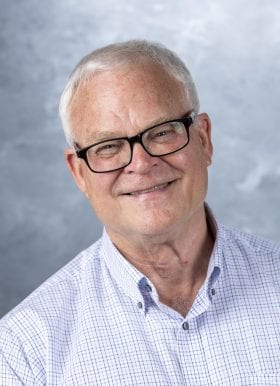SEED for Oklahoma Kids (SEED OK)
Asset Building


The SEED for Oklahoma Kids (SEED OK) experiment, a large-scale study with randomly selected newborn children, including oversamples of African Americans, American Indians, and Hispanics, is among the most important policy tests of Child Development Accounts (CDAs). SEED OK models an automatic, universal, and progressive at-birth CDA policy, which includes every child and has the potential to reach scale and sustainability.

As the first randomized controlled trial of CDAs in the United States, SEED OK is also rigorously investigating short- and long-term impacts for children and parents. Wave 3 expands the original CDA in SEED OK with an automatic progressive deposit and extends the longitudinal research to examine the impacts of the CDA when the children are in middle school. Recent findings from this long-running randomized social experiment are presented in two publications: a research summary of financial outcomes—Oklahoma 529 College Savings Plan account holding and savings—as of December 31, 2019, and a report on analyses of 2020 survey responses.
Peer-reviewed findings from SEED OK—in well-regarded social science and medical journals—document important (and intended) financial outcomes, such as increased account holding and asset accumulation, as well as positive attitudinal and behavioral outcomes. For example, children with CDAs score better than children in the control group on a measure of social-emotional development, and their mothers report higher educational expectations, more positive parenting practices, and fewer depressive symptoms. Most of these positive impacts are larger in disadvantaged families. We find positive effects among all race and ethnic groups, indicating that a well-designed policy can facilitate CDA asset accumulation for all. Read key findings and conclusions from SEED OK research here.
SEED OK research is multimethod and rigorous, including random sampling from a state population, random assignment to treatment and control groups, longitudinal survey data, savings data electronically transferred from the financial provider, and in-depth interviews. In 2007, newborns from across Oklahoma were randomly selected to participate in the experiment. SEED OK uses the Oklahoma 529 College Savings Plan (OK 529) as a policy platform, taking advantage of a financial structure already in place, which enables full inclusion, cost efficiency, and long-term sustainability. In the process, SEED OK is demonstrating that a 529 platform can transform college savings to include all children.
After about 2,700 mothers completed a baseline survey, half of the newborns (the treatment group) received the CDA, which consists of an automatically opened state-owned OK 529 college savings account, a $1,000 initial deposit, and a time-limited savings match for lower-income families. The other half (the control group) did not receive an account. SEED OK follows both treatment and control groups throughout the experiment.
SEED OK conducted a wave-2 survey when the children reached age 4 and a wave-3 survey in 2020, when the children were about 12. Each calendar quarter, account and savings data are collected for every OCSP 529 plan account with a SEED OK child listed as beneficiary.
SEED OK findings are the greatest source of knowledge on CDA policies. Because SEED OK was designed with policy potential in mind, SEED OK research has directly informed policy development in US states (Maine, Nevada, Rhode Island, Connecticut, Pennsylvania, Massachusetts), in a growing number of counties in Indiana, and in cities (San Francisco, St. Louis, New York, Los Angeles, Lansing, Oakland, and others).
Initial communications—Frequently Asked Questions (FAQ) Brochure, Let’s Get Started Booklet, Savings Match Terms—introduced SEED OK and familiarized participants with its features. A series of communications encouraged savings and emphasized the importance of children’s education and development.
Funding Partners: Ford Foundation, Charles Stewart Mott Foundation, Lumina Foundation for Education
Principal Investigator

Michael Sherraden
CSD Founding Director,
George Warren Brown Distinguished University Professor
- Email: sherrad@nospam.wustl.edu
Project Director

Margaret Clancy
CSD Policy Director,
Director of College Savings Initiative and SEED for Oklahoma Kids
- Email: mclancy@nospam.wustl.edu
